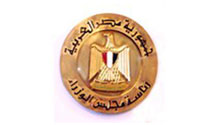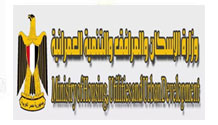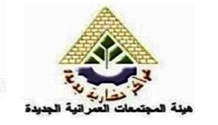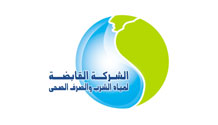Infra - Africa
An integrated and comprehensive efficient marketing tool for all companies in infrastructure sectors serving new and sustainable cities ( agricultural, industrial &urban ) in Egypt & Africa where leading local and international companies, organizations, factories ,distributors, suppliers , agents, trade agencies in different infrastructure sectors (water and wastewater-power and electricity-transportation and logistics- IT and communications – building and construction – safety and security – heavy equipments and machineries – environment and sustainability – banking and financing ) are all gathered together under one roof. Infra - Africa is your golden –not to be missed - opportunity to promote and advertise your company’s products and services to your targeted customers in Egypt and African markets.Why Infra - Africa? And why now?
The answer is so simple ,
Wherever there are challenge, need for solutions = rising of opportunities.
Now, the vision is not only determined but supported by strong well
* Infrastructure construction in Africa & Egypt is seen as a key driver to the economy.*
Africa and Egypt suffer from a persistent infrastructure deficit.
Infrastructure construction in Egypt is set to improve as the World Bank head Jim Yong Kim expressed his support in various ongoing and upcoming projects.
In a meeting with Egyptian president Abdel-Fattah El-Sissy over the weekend in New York the World Bank boss said Egypt has a great potential in terms of development and it deserves more support.
Egypt's rapidly growing building and construction sector has attracted investments of around USD 7.3 billion by 2016. The sector continues to uplift related industries such as cement, metal and steel, water supplies ,heavy equipments and machinery ,IT components, automation tools, electricity supplies , Fire and security equipments . It has emerged as one of the country's top revenue generators. Non-residential construction will continue to dominate the industry and comprise up to USD 6.7 billion, with residential projects to account for USD 606 million. Read more…..
Despite the recent downturn in the region due to the wave of political uprisings known as the Arab Spring swept across the Middle East and North Africa (MENA) region, the fundamentals for the construction market remain strong, and analysts are confident that fenestration demand will rebound in the medium - long term; The supply-demand imbalance between finished products output and apparent consumption in the Middle East & North Africa (MENA) region is expected to widen in the next few years.
Egypt for a while have been benefiting from the world Bank as currently there are over 26 ongoing projects being funded by world bank and they are estimated to have a value of $5.5 billion.
Egyptian president El-Sisi and Kim also discussed a number of government megaprojects underway in Egypt which the World Bank could contribute to, including the project aiming to reclaim more than 1.5 million acres of land in Egypt’s western desert.
Currently there are ongoing plans to build a city to decongest the current Cairo.
In the start of the year El-Sisi had signed off on a $500 million loan from the World Bank that will fund and implement the gas generation project for Egypt.
The government has also taken a $400 million loan from the World Bank to bolster a welfare project aimed at benefiting 1.5 million poor Egyptian families.
Concerning Africa, Africa’s population is nearing 1.1 billion.
The GCI data confirm once more the region’s pronounced infrastructure deficit—a critical bottleneck to reaping the benefits from increased regional integration, a topic explored in the 2013 Africa Competitiveness Report.
The Priority Action Plan of the Program for Infrastructure Development in Africa (PIDA PAP) alone encompasses an investment need of US$68 billion between 2012 and 2020, incorporating 51 programs of regional importance in the transport, water, energy, and information and communication technologies (ICT) sectors. Read more ….
Connecting Africa’s markets will be a critical driver for the region in boosting intra-African trade. Data suggest that, to date; only 11.3 % of trade in Africa is intra-African. Estimates suggest that the annual infrastructure and maintenance needs for sub-Saharan Africa only stand at 10 percent of GDP.
Infrastructure provision and financing The quality and availability of infrastructure is an important factor in determining the attractiveness of a location for GVC investment decisions.
When planning and designing infrastructure, particular attention should also be placed on intra-regional connections and spatial planning. Increasing links between countries and between growth poles and growing secondary cities as well as between urban and rural areas will unlock local growth opportunities.
Going to sustainability is not a trend, it would be a must .African countries had set their goals for that commitment.
Funding many environmental activities, initiatives and technologies have been allocated.
Infra – Africa is a leading Infrastructure event that showcases the latest infrastructure technology solutions .It’s where the world of infrastructure meets, both Public and Private sectors, to accelerate African’s critical national infrastructure needs.
Infra -Africa is more than an exhibition
- Live product demonstrations
- On-site displays
- Keynote addresses from industry leaders
- Free technical seminars, project updates and discussion forums
- Industry innovations
- The Recruitment Wall – be the first to hear about and apply
- Visitor and Exhibitor Networking Reception
- Free Business Matching service to arrange meetings with your preferred suppliers
Book your stand now














